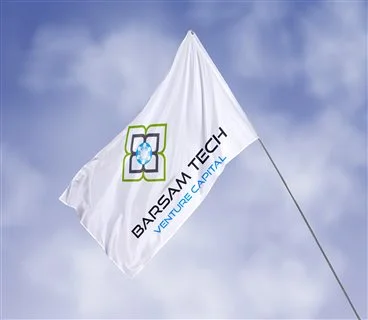Startups, as new businesses, need to draft various types of contracts to protect their rights and carry out legal activities.
The Importance of Drafting Contracts Before Starting a Business:
When you decide to start a startup, drafting relevant contracts is highly important. These contracts help you to:
- Reduce business risks.
- Clearly and specifically define your relationships with partners, employees, investors, and other stakeholders.
- Establish a framework for resolving disputes should they arise.
Types of Essential Startup Contracts:
- Founders' Agreement:This contract is made between the founders of a startup and specifies the roles, responsibilities, and share percentages of each founder.
Key Points to Address in This Agreement:- Identification of the founders
- Roles and responsibilities of each founder
- Initial capital division and each founder’s share
- Conditions for withdrawal, dissolution, and dismissal of managers
- Confidentiality, non-competition, and intellectual property
- Shareholders’ Agreement (SHA):This contract controls and manages the relationships between the company's shareholders and outlines the commitments and duties of each party.
Key Points to Address in This Agreement:- Identification of shareholders
- Determining management matters, including voting rights
- Profit and share participation
- Confidentiality and non-competition
- Share transfer conditions
- Decision-making for dispute resolution methods
- Company dissolution and related issues
- Employment or Work Contract:This contract defines the rights and obligations of both the employee and the employer.
Key Points to Address in This Contract:- Type of work or profession the employee is hired for
- Base salary and additional benefits
- Working hours, holidays, and leaves
- Work location
- Date of contract signing
- Contract duration
- Other terms and conditions
- Non-Disclosure Agreement (NDA):This contract protects confidential information and business secrets.
Benefits of Using an NDA:- Trust-building: An NDA helps build trust between parties involved in a partnership or working relationship.
- Interest Protection: It helps protect each party’s interests against unauthorized disclosures of confidential information.
- Prevention of Misuse: An NDA can prevent third parties from misusing confidential information.
- Key Points to Address in This Contract:
- Definition of confidential information
- Parties’ obligations regarding confidentiality
- Penalties for breach of obligations
- Non-Compete Agreement:This contract prevents an employee or shareholder from competing with the company after leaving it.
Purpose of This Contract:- Protecting the employer’s trade secrets and confidential information
- Preventing the employee from using the expertise and experience gained in the company
- Safeguarding the employer's legitimate interests
- Key Points to Address in This Contract:
- Time and location scope of non-competition
- Types of activities subject to non-competition
- Penalties for breach of obligations
- Vesting Agreement:This contract specifies how equity is allocated to startup employees or investors over time based on their performance and commitments.
Importance and Use of Vesting Agreements:- The value of contributions (knowledge and expertise) in startups increases over time.
- Founders or team members may seek to exit the startup.
- Vesting agreements are used to maintain commitment and stability in startups.
- Advantages of Vesting Agreements:
- Motivation for long-term commitment
- Benefits from increased share value over time
- Preventing early exit of founders and key members
- Attracting investors: Indicates stability and commitment of the team, reduces investment risk
- Investment Contract in Startups:This contract is made between the startup and its investors and specifies investment terms, such as the amount of investment, type of shares, rights and obligations of the parties, etc.
Advantages of Using an Investment Contract:- Creates transparency and clarity in the relationships between the startup and investors
- Reduces risk for both parties
- Increases trust and confidence
- Facilitates the capital-raising process
- Partnership Agreement in Startups:When a startup has a specific and reliable product or project, it may sign a partnership contract with investors instead of giving away equity. In this type of contract, the investor, assured of the project’s profitability, provides capital to the startup. The startup uses this capital to develop its product or project. The profit from the project is distributed according to a pre-agreed percentage over specific time intervals, and at the end of the project, the principal investment is returned to the investor.
Features of This Contract:- Undefined (its terms are not specified in civil law)
- Binding (the parties have no right to terminate it)
- It does not dissolve upon death or incapacitation of the parties.
- Non-formal (no special formalities are required for its signing)
- Elements of This Contract:
- Collaboration subject: description of each party’s services and products
- Financial terms: payment methods, profit and loss sharing
- Intellectual property: rights related to inventions and new technologies
- Conditions for contract termination: terms for ending the collaboration
- Dispute resolution authority: methods for resolving issues if problems arise
In conclusion, startup contracts are essential tools for the success of startups. These contracts provide a legal framework for relationships between stakeholders, reduce risks, increase trust and confidence, and facilitate capital attraction.
.png)



